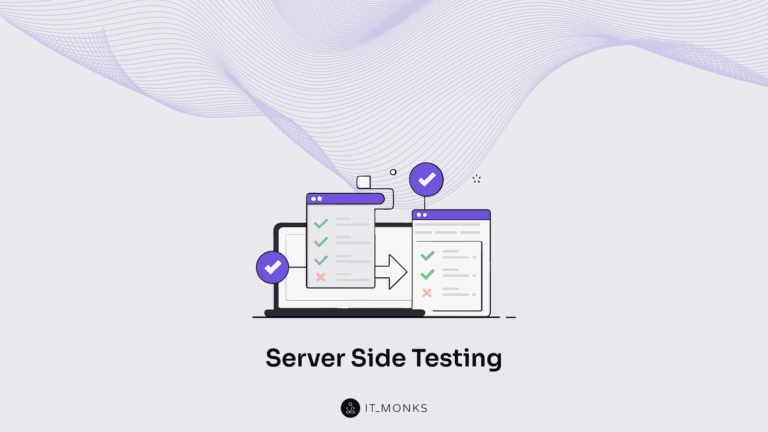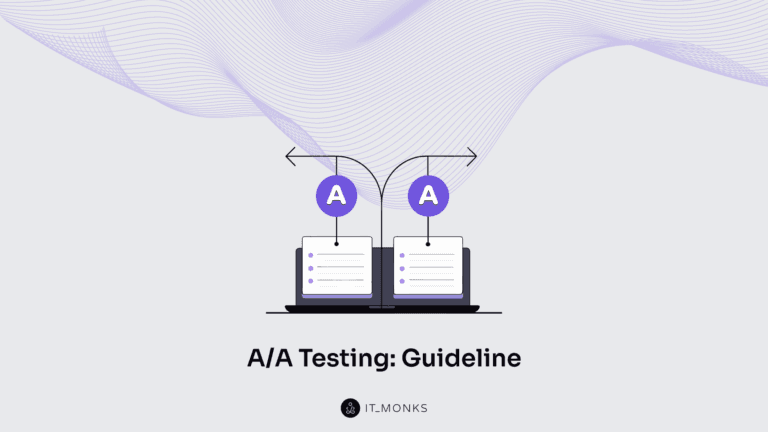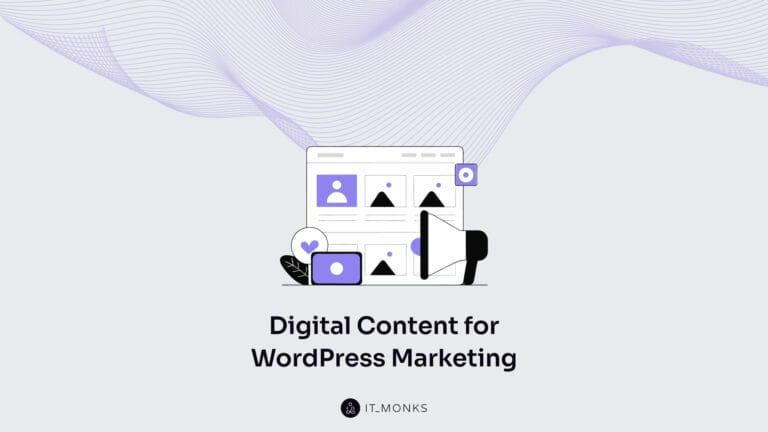22 Ecommerce Tools to Increase Sales in 2024
Table of Contents

Having the right ecommerce tools can make a substantial difference in the success and growth of your online store. These tools are not just accessories; they are essential components that enhance various aspects of your business. From site performance analysis and user-centered design techniques to marketing efficiency and customer support, the right tools can optimize your operations and significantly boost your sales. This article offers a comprehensive list of ecommerce tools and technology you need to know about and use to drive more revenue for your business.
Ecommerce tools impact website performance by ensuring your site loads quickly, is mobile-friendly, and offers a seamless shopping experience. They enhance the user experience by providing intuitive navigation, personalized recommendations, and efficient checkout processes. Moreover, these tools help you better understand and engage your customers, streamline your inventory management, and offer superior customer support. As a result, your business can achieve higher conversion rates, improved customer satisfaction, and increased revenue.
What are Ecommerce Tools?
Ecommerce tools are specialized software applications designed to assist online businesses in managing and optimizing their operations. These tools cover many functionalities, from building and maintaining your ecommerce website to handling payments, improving search engine visibility, automating marketing tasks, managing customer support, tracking inventory, and analyzing business performance. Integrating these tools into your business processes creates a more efficient, effective, and profitable online store.
Categories of Ecommerce Tools
Ecommerce tools are typically categorized based on their functionality, which helps businesses identify the right tools for specific needs. Categorizing tools makes it easier for businesses to focus on different aspects of their operations and ensures comprehensive coverage of all necessary functions. Here are the main categories and their purposes:
- Website Builders and Platforms: These tools are crucial for creating and managing an ecommerce website. They provide the infrastructure, templates, and customization options to build a professional online store.
- Payment Gateways: These tools facilitate secure and efficient transaction processing, allowing customers to pay using various methods. They are essential for ensuring smooth and reliable payment experiences.
- SEO Tools: Search Engine Optimization (SEO) tools help improve a website’s visibility on search engines, driving organic traffic and increasing the chances of attracting potential customers.
- Marketing Automation Tools: These tools streamline and automate marketing efforts, helping businesses reach and engage customers more effectively. They include email marketing, social media advertising, and customer segmentation features.
- Customer Support Tools: Customer support tools are designed to manage and enhance customer service interactions. They provide solutions for ticketing, live chat, and customer relationship management.
- Inventory Management Tools: These tools help businesses track and manage their inventory, ensuring products are available when needed and minimizing stockouts and overstock situations.
- Analytics and Reporting Tools: Analytics tools provide insights into business performance, customer behavior, and website metrics. They help businesses make data-driven decisions to optimize operations and strategies.
By understanding the purpose and benefits of each category, ecommerce businesses can select and implement the right tools to address their specific needs, leading to a more efficient and successful operation.
Website Builders and Platforms

Website builders and platforms are essential for creating, customizing, and managing ecommerce websites. These tools provide the infrastructure, design templates, and functionalities required to set up an online store without needing extensive technical knowledge. They are crucial because they simplify building a professional website, ensuring it is optimized for performance, user experience, and scalability.
Shopify
Shopify is a leading ecommerce platform offering comprehensive features designed to help businesses of all sizes create and manage their online stores. Its main features include:
- Ease of Use: Shopify’s intuitive interface allows users to set up their store quickly without technical skills.
- Extensive App Store: Access a wide range of plugins and integrations to enhance store functionality.
- Responsive Themes: Professionally designed templates that are mobile-friendly and customizable.
- Secure Payment Processing: Supports multiple payment gateways and ensures secure transactions.
- Scalability: Suitable for businesses of all sizes, from startups to large enterprises.
Shopify is ideal for those who want a reliable and scalable platform with a strong support system and numerous customization options.
WooCommerce
What is WooComerce? WooCommerce is a powerful, open-source ecommerce plugin for WordPress. Its main features include:
- Flexibility: Highly customizable and extendable with numerous plugins and themes.
- Integration with WordPress: Seamlessly integrates with WordPress, leveraging its content management capabilities.
- Cost-Effective: Free to use with optional paid extensions for additional features.
- Control Over Data: Full control over your ecommerce data and hosting.
- Community Support: Large community of developers and users providing support and resources.
WooCommerce is perfect for businesses that already use WordPress or want the flexibility to customize their online store extensively.
BigCommerce
BigCommerce is a robust ecommerce platform designed for growing businesses. Its main features include:
- Built-In SEO Tools: Advanced SEO features to improve search engine rankings.
- Multi-Channel Selling: Easily sell on various platforms, including Facebook, Amazon, and eBay.
- Scalable Architecture: Handles large product catalogs and high traffic volumes.
- Customizable Templates: Professionally designed themes that can be tailored to your brand.
- Comprehensive Analytics: Detailed reports and analytics to track performance and sales.
BigCommerce suits businesses seeking a scalable and feature-rich platform that can grow with them.
Magento
Magento is an open-source ecommerce platform known for its flexibility and extensive customization options. Its main features include:
- Customizability: Highly customizable with the ability to create unique shopping experiences.
- Advanced Features: Comprehensive set of SEO, marketing, and analytics tools.
- Large Community: Strong community of developers and extensive marketplace for extensions.
- Scalability: Capable of handling complex ecommerce needs and large-scale operations.
- Security: Robust security features to protect your online store and customer data.
Magento is ideal for businesses with complex requirements and the technical expertise to manage a highly customizable platform.
Payment Gateways

WooCommerce best payment gateway solutions are essential for processing online transactions securely and efficiently. They facilitate the transfer of funds from customers to merchants, ensuring smooth and secure payment experiences.
PayPal
PayPal is one of the most widely recognized and trusted payment gateways. Its main features include:
- Global Reach: Accepted in over 200 countries and supports multiple currencies.
- Ease of Use: Simple and quick checkout process for customers.
- Security: Advanced fraud protection and buyer protection policies.
- Versatile Payment Options: Supports credit/debit cards, PayPal balance, and bank transfers.
- Integration: Easy integration with most ecommerce platforms.
PayPal is ideal for businesses looking for a widely trusted payment gateway that offers customers a secure and convenient payment experience.
Stripe
Stripe is a flexible and developer-friendly payment gateway. Its main features include:
- Wide Range of Payment Methods: Supports credit cards, debit cards, and various local payment methods.
- Developer Tools: Robust APIs for seamless integration and customization.
- Recurring Billing: Supports subscription services and recurring payments.
- Security: PCI compliance and advanced fraud detection tools.
- International Payments: Handles multi-currency transactions and local payment methods.
Stripe is perfect for businesses that require a highly customizable payment solution with extensive developer tools.
Square
Square is a versatile payment gateway known for its simplicity and ease of use. Its main features include:
- Integrated POS System: Combines online and offline payment processing.
- Invoicing: Simple invoicing tools for billing customers.
- Mobile Payments: Supports mobile payments through its app and hardware.
- Comprehensive Dashboard: Provides detailed analytics and reporting.
- No Monthly Fees: Transparent pricing with no monthly or hidden fees.
Square is suitable for businesses needing an easy-to-use, all-in-one payment solution that works online and offline.
SEO Tools

SEO tools are essential for improving a website’s visibility on search engines, driving organic traffic, and increasing the chances of attracting potential customers.
Ahrefs
Ahrefs is a powerful SEO tool that provides comprehensive data on backlinks, keywords, and competitor analysis. Its main features include:
- Backlink Analysis: Detailed insights into your backlink profile and competitors’ backlinks.
- Keyword Research: Extensive keyword research tools to identify high-potential keywords.
- Site Audits: In-depth site audits to identify and fix SEO issues.
- Content Explorer: Discover top-performing content in your niche.
- Rank Tracking: Monitor your website’s search engine rankings over time.
Ahrefs is ideal for businesses looking to improve their search engine rankings and gain a competitive edge through detailed SEO analysis.
SEMrush
SEMrush is an all-in-one SEO tool that offers keyword research, site audits, and competitor analysis. Its main features include:
- Keyword Research: Identify profitable keywords and analyze keyword difficulty.
- Site Audit: Comprehensive site audit tools to identify and fix SEO issues.
- Competitor Analysis: Insights into competitors’ SEO strategies and performance.
- Content Marketing Tools: Tools to optimize and plan your content marketing strategy.
- Advertising Research: Analyze and optimize your paid search campaigns.
SEMrush is suitable for businesses seeking a comprehensive SEO tool covering all search engine optimization and digital marketing aspects.
Marketing Automation Tools

Marketing automation tools help businesses streamline and automate their marketing efforts, improving efficiency and effectiveness.
Mailchimp
Mailchimp is a popular marketing automation tool that offers email marketing, social media advertising, and customer segmentation. Its main features include:
- Email Campaigns: Easy-to-use templates and drag-and-drop email builder.
- Automation: Automated workflows for email campaigns and customer journeys.
- Audience Segmentation: Segment your audience based on behavior and preferences.
- Analytics: Detailed reports and insights into campaign performance.
- Integrations: Integrates with various ecommerce platforms and other marketing tools.
Mailchimp is perfect for businesses looking to enhance their email marketing efforts and automate their marketing campaigns.
HubSpot
HubSpot is an all-in-one marketing, sales, and service platform offering various automation tools. Its main features include:
- Marketing Automation: Automated workflows for email marketing, lead nurturing, and more.
- CRM Integration: Seamlessly integrates with HubSpot CRM for comprehensive customer management.
- Content Management: Tools for content creation, optimization, and management.
- Analytics: In-depth analytics and reporting on marketing performance.
- Sales and Service Tools: Additional tools for sales and customer service automation.
HubSpot is ideal for businesses looking for an all-in-one platform to manage their marketing, sales, and customer service efforts.
Klaviyo
Klaviyo is a marketing automation platform designed specifically for ecommerce businesses. Its main features include:
- Email and SMS Marketing: Advanced tools for email and SMS marketing campaigns.
- Customer Segmentation: Detailed segmentation based on customer behavior and preferences.
- Personalization: Personalized product recommendations and automated messages.
- Analytics: Comprehensive analytics and reporting on campaign performance.
- Integrations: Integrates with popular ecommerce platforms like Shopify and WooCommerce.
Klaviyo is suitable for ecommerce businesses looking to drive more sales and improve customer engagement through personalized marketing campaigns.
Customer Support Tools

Customer support tools help businesses provide excellent customer service and build strong customer relationships.
Zendesk
Zendesk is a comprehensive customer support platform that offers ticketing, live chat, and help desk solutions. Its main features include:
- Ticketing System: Efficiently manage customer inquiries and support tickets.
- Live Chat: Engage with customers in real-time through live chat.
- Knowledge Base: Create a self-service portal with FAQs and support articles.
- Analytics: Detailed reports and insights into customer support performance.
- Integrations: Integrates with various ecommerce platforms and other tools.
Zendesk is perfect for businesses looking to streamline their customer support operations and improve customer satisfaction.
LiveChat
LiveChat is a popular live chat tool that allows businesses to engage with customers in real-time. Its main features include:
- Chat Widgets: Customizable chat widgets for your website.
- Chat Transcripts: Keep records of customer conversations for future reference.
- Visitor Tracking: Monitor website visitors and initiate chats based on behavior.
- Integrations: Integrates with popular ecommerce platforms and CRM systems.
- Analytics: Detailed reports on chat performance and customer satisfaction.
LiveChat is ideal for businesses looking to provide prompt and personalized support through live chat.
Intercom
Intercom is a versatile customer support tool that offers live chat, chatbots, and customer engagement features. Its main features include:
- Live Chat: Real-time chat with customers for instant support.
- Chatbots: Automated chatbots to handle common queries and improve efficiency.
- Customer Segmentation: Segment customers based on behavior and preferences.
- In-App Messaging: Engage with customers through in-app messages and notifications.
- Analytics: Comprehensive analytics and reporting on customer interactions.
Intercom suits businesses seeking a multi-functional customer support tool that enhances customer engagement and support.
Inventory Management Tools

WooCommerce inventory management tools help businesses track and manage their inventory, ensuring products are available when needed and minimizing stockouts and overstock situations.
TradeGecko
TradeGecko is a powerful inventory management tool designed for ecommerce businesses. Its main features include:
- Inventory Tracking: Real-time tracking of inventory levels across multiple locations.
- Order Management: Efficiently manage orders from various sales channels.
- Integrations: Integrates with popular ecommerce platforms and accounting software.
- Reporting: Detailed reports and analytics on inventory performance.
- Automations: Automated workflows for inventory replenishment and order fulfillment.
TradeGecko is perfect for businesses looking to streamline their inventory management and improve operational efficiency.
Ordoro
Ordoro is an all-in-one inventory management and shipping solution. Its main features include:
- Inventory Control: Centralized inventory management across multiple sales channels.
- Shipping Management: Efficiently manage shipping and fulfillment processes.
- Dropshipping: Support for dropshipping operations and suppliers.
- Integrations: Integrates with popular ecommerce platforms and marketplaces.
- Reporting: Detailed analytics and reporting on inventory and shipping performance.
Ordoro is ideal for businesses seeking a comprehensive inventory and shipping operations management solution.
Veeqo
Veeqo is an inventory management tool designed to help ecommerce businesses manage inventory, orders, and shipping. Its main features include:
- Multi-Channel Inventory: Centralized inventory management across multiple sales channels.
- Order Management: Efficient order processing and fulfillment.
- Shipping Integrations: Integrates with major shipping carriers for streamlined shipping.
- Analytics: Detailed reports and insights into inventory and sales performance.
- Automations: Automated workflows for inventory replenishment and order processing.
Veeqo suits businesses looking to optimize their inventory management and streamline order fulfillment processes.
Analytics and Reporting Tools

Analytics and reporting tools provide insights into business performance, customer behavior, and website metrics. They help businesses make data-driven decisions to optimize operations and strategies.
Google Analytics
Google Analytics is a powerful web analytics tool that provides detailed insights into website traffic and user behavior. Its main features include:
- Traffic Analysis: Track website traffic sources, user behavior, and conversion rates.
- Audience Insights: Understand demographics, interests, and behavior of your audience.
- Ecommerce Tracking: Monitor sales performance, product performance, and customer behavior.
- Custom Reports: Create custom reports and dashboards to track key metrics.
- Integrations: Integrates with various marketing and ecommerce platforms.
Google Analytics is perfect for businesses seeking comprehensive insights into their website performance and user behavior.
Kissmetrics
Kissmetrics is an analytics and customer engagement tool designed to help businesses understand and engage their customers. Its main features include:
- Customer Tracking: Track customer behavior and interactions across your website.
- Funnel Analysis: Analyze conversion funnels and identify areas for improvement.
- Segmentation: Segment customers based on behavior and attributes.
- Cohort Analysis: Understand customer retention and lifetime value through cohort analysis.
- Engagement Tools: Engage customers with personalized messages and notifications.
Kissmetrics is ideal for businesses seeking to improve customer engagement and optimize their marketing strategies through detailed analytics.
Hotjar
Hotjar is a user experience analytics tool that provides insights into how users interact with your website. Its main features include:
- Heatmaps: Visualize user behavior through heatmaps of clicks, taps, and scrolling.
- Session Recordings: Record and playback user sessions to understand their behavior.
- Feedback Tools: Collect user feedback through surveys and polls.
- Funnel Analysis: Analyze user journeys and identify drop-off points.
- Form Analysis: Optimize forms by understanding how users interact with them.
Hotjar suits businesses looking to enhance their website user experience and understand user behavior in detail.
Integration and Compatibility
Integrating various tools is crucial for creating a seamless workflow and ensuring that all aspects of your ecommerce business are connected. When selecting tools, it’s important to ensure they are compatible with your existing systems and platforms. Here are some tips for ensuring compatibility:
- Check Integrations: Before choosing a tool, check if it integrates with your existing platforms and tools.
- API Availability: Ensure the tool offers APIs for custom integrations.
- Scalability: Choose tools that can scale with your business growth and changing needs.
- Vendor Support: Select tools from vendors that offer strong support and documentation for integrations.
- Testing: Test integrations thoroughly before fully implementing them to avoid disruptions.
Integration and Compatibility
integrating various tools is essential for creating a seamless and efficient workflow. The integration of tools allows for the synchronization of data and processes across different aspects of your business, such as sales, marketing, customer support, and inventory management. This interconnected approach ensures that all parts of your business work harmoniously, reducing manual effort, minimizing errors, and enhancing overall productivity.
- Data Consistency: Integration ensures that data is consistent and up-to-date across all platforms. For instance, integrating your ecommerce platform with your inventory management tool ensures that stock levels are accurately reflected on your website, preventing overselling and stockouts.
- Enhanced Customer Experience: Seamless integration between customer support tools and your ecommerce platform allows support teams to access order information quickly, providing efficient and informed customer service.
- Streamlined Operations: By integrating marketing automation tools with your CRM and ecommerce platform, you can automate personalized marketing campaigns based on customer behavior and purchase history, leading to higher engagement and conversion rates.
- Improved Analytics: Integrating analytics tools with your ecommerce platform provides a holistic view of your business performance. You can track customer journeys from acquisition to purchase, gaining valuable insights to inform your strategies.
Tips on Ensuring Compatibility Between Different Tools and Platforms
Ensuring compatibility between different tools and platforms is crucial for a smooth integration process. Here are some tips to help you achieve this:
- Evaluate Integration Capabilities: Before selecting a tool, evaluate its integration capabilities. Look for built-in integrations with popular platforms and check if it offers APIs for custom integrations.
- Choose Tools with Open APIs: Tools that offer open APIs provide flexibility for custom integrations, allowing you to seamlessly connect them with other systems.
- Check for Native Integrations: Opt for tools that offer native integrations with other platforms you already use. Native integrations are typically easier to set up and maintain.
- Consult Vendor Support: Work with vendors that offer robust support and documentation for integrations. They can provide guidance and troubleshooting assistance during the integration process.
- Perform Compatibility Tests: Before fully implementing an integration, perform thorough compatibility tests. Test data synchronization, functionality, and workflow processes to ensure everything works as expected.
- Consider Scalability: Choose tools that can scale with your business growth. Ensure that the integration can handle increased data volumes and more complex workflows as your business expands.
Conclusion
Search no more the “What is ecommerce tools definition?” Now, you are equipped with a comprehensive list of the best ecommerce tools imaginable for all purposes and needs. Consider bookmarking this post for quick access and further references whenever you need expert advice on selecting the right SEO and marketing automation tools for your online store.
Do you need professional assistance with building and managing your ecommerce store? Count on the IT Monks team! We’ve been working with ecommerce sites for 12+ years. We will carefully select and integrate your store with the best ecommerce tools, thus creating a seamless workflow that improves efficiency, enhances customer experience, and ultimately increases sales. Contact us to discuss your project!
Contact
Don't like forms?
Shoot us an email at [email protected]




